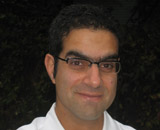 Vienna—Efforts to rid the world of dangerous medicines have been given a boost by the United Nations Office of Drugs and Crime. Delegates of UN member states, police, manufacturers, academics, and pressure groups gathered recently at UNODC headquarters in Vienna to discuss the present and future criminalisation of “fraudulent” medicines, which increasingly threaten the international supply chain and have led to recorded fatalities. The choice of meeting room—belonging to the International Atomic Energy Agency, where previously nuclear weapons reductions talks were held—added solemnity, perhaps unintentionally.
Vienna—Efforts to rid the world of dangerous medicines have been given a boost by the United Nations Office of Drugs and Crime. Delegates of UN member states, police, manufacturers, academics, and pressure groups gathered recently at UNODC headquarters in Vienna to discuss the present and future criminalisation of “fraudulent” medicines, which increasingly threaten the international supply chain and have led to recorded fatalities. The choice of meeting room—belonging to the International Atomic Energy Agency, where previously nuclear weapons reductions talks were held—added solemnity, perhaps unintentionally.
Delegates debated the meaning of the term “fraudulent” medicine, and whether it refers to intentionally falsified medicine, accidentally substandard medicine, trademark-infringing medicine, or some combination of these. A similar debate has been under way at the World Health Organization (WHO) since 2011, where member states have met three times, without achieving a consensus on definitions. WHO is now required by member states to refer to “substandard/spurious/falsely labelled/falsified/counterfeit medical products.” The government of India, which earlier argued to disband a WHO task force on medicine crime, tried to bring similar paralysis to UNODC. In the closing session of the meeting, India proposed that UNODC abstain from action, and protested even the preparation of a summary of the meeting’s outcome. India’s objection was amplified and reiterated by an NGO, the Third World Network. However, no other country or NGO brought similar objections, and the meeting’s summary was accepted largely as read by the moderator, Ambassador Eugenio María Curia of Argentina.
UNODC’s meeting is noteworthy as the first time that the UN has convened experts, and not just member states, to discuss fighting poor quality medicines. Unlike WHO, which held several meetings of member states only, and which reached a stalemate on definitions, diverse speakers at the UNODC conference emphasised the practical necessity of considering the public health, legal, and criminological aspects of the problem together. Belgium gave an informative presentation on the diversity of fake medicines and cosmetics it has seized—including some deliberately containing toxic substances. China and Nigeria presented their results in keeping fake medicines off the market, and emphasised that public health protection was improved after strengthening their national criminal laws and enforcement efforts. Argentina presented results on an expanding national programme to label medicine packages with digital serial numbers, able to be tracked and traced to deter crime. Internationally, the World Customs Organisation and INTERPOL summarised their results in multi-country law enforcement operations, some of which seized tens of millions of fake treatments. WHO, Sanofi, and the Pharmaceutical Security Institute each explained their perspectives on medicine safety, but guardedly and less informatively than other presenters, possibly due to criticism by the Third World Network in the past faulting WHO’s and industry’s collaboration in law enforcement.
Several speakers referred to the need for more binding global rules on medicine quality, such as a treaty. The Council of Europe gave an update on its Medicrime Convention (2011), which is not in force, partly because of a lack of signatures or ratifications from countries outside Europe. UNODC offered the UN Convention on Transnational Organized Crime as a model. Collectively, the west African countries, through the Economic Community of West African States, called for a new global treaty, as outlined previously in BMJ (2012;345:e7381).
In a parallel development the same week, the US government’s Institute of Medicine released a new study on medicine crime. That study proposes a number of new legislative actions for the USA, such as mandatory tracking-and-tracing system, and new definitions of illegitimate medicines for WHO and its member states, but inexplicably omits the criterion of criminal intent which the same member states in UNODC have considered essential. The current UNODC definition of “fraudulent” medicine is limited to “only cases involving criminal intent … and not unintentional mistakes made in content and dosage.” In the IOM’s proposed definitions, accidental and intentional deviations from pharmaceutical norms are not distinguished.
UNODC will present the outcome of the meeting to its member states at the meeting of its Commission on Crime Prevention and Criminal Justice in April 2013, with WHO likely to hold separate but parallel meetings of member states later in the year, if approval is forthcoming from the World Health Assembly this May.
Amir Attaran: Faculty of Law and Faculty of Medicine, University of Ottawa, Canada.